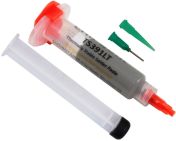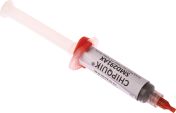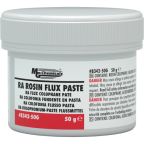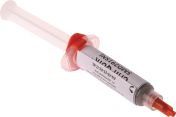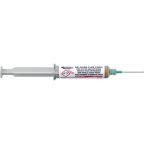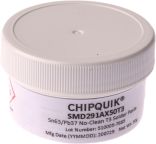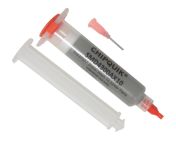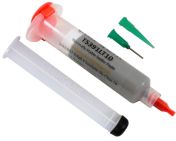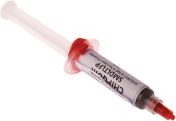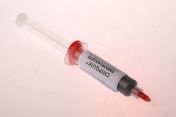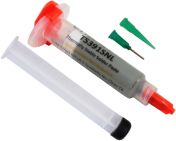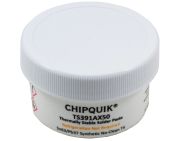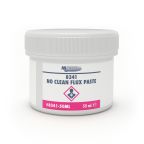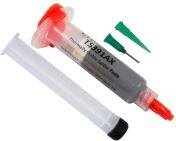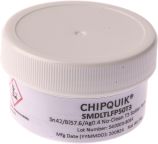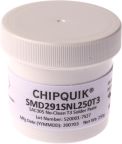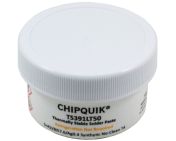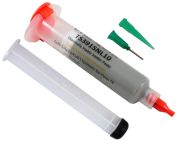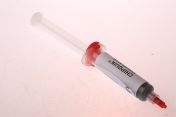Solder Pastes
Solder paste is a type of solder used when manufacturing PCBs to connect surface mount components to pads on the board. The paste is a mixture of small solder spheres with flux. The paste initially adheres components in place because of its stickiness. You then use heat to melt the paste to form a mechanical bond and an electrical connection. Solder paste is applied to the board by stencil printing and the components are put in place by a pick and place machine or by hand. Defects in the circuit-board assembly are caused due to issues in the solder-paste printing process or due to defects in the solder paste. This can give short circuits, incomplete circuits, and head on pillow defects.
How to use Solder paste?
Remove oil, grease, polishing compound and any excessive oxides from the joint. Make sure that the joint is smooth, flat and free from any burs. Apply the solder paste to the top joint. The paste will not fill large gaps so make sure that the pieces to be soldered actually touch. Apply heat to the piece away from the joint, keep the heat source moving to prevent overheating the paste. Once the paste flows to remove the heat source.
Typical Applications for Solder Paste
Solder pastes are used in mass production of PCBs and prototype PCB assembly.
Popular Searches
Related links
- CHIPQUIK Thermally Stable Solder Paste Lead Free Solder Paste, 35g Syringe
- CHIPQUIK Thermally Stable Solder Paste Lead Free Solder Paste, 15g Syringe
- CHIPQUIK SMD291SN Lead Free Solder Paste, 35g Syringe
- CHIPQUIK SMD4300SN Lead Free Solder Paste, 35g Syringe
- CHIPQUIK Thermally Stable Solder Paste Lead Free Solder Paste, 250g Jar
- MG Chemicals 4902P T3 Lead Free Solder Paste, 15g Syringe
- CHIPQUIK SMD LTLF Lead Free Solder Paste, 35g Syringe
- CHIPQUIK SMD LTLF Lead Free Solder Paste, 15g Syringe
